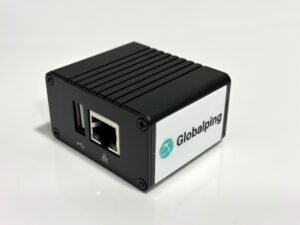
“Globalping is a platform that allows anyone to run networking commands such as ping, traceroute, dig and mtr on probes distributed all around the world. Our goal is to provide a free and simple API for everyone out there to build interesting networking tools and services.”
That’s how LowEndVeteran @jimaek describes the project on GitHub. If the name @jimaek sounds familiar, it’s probably because you remember him from our interview regarding jsdelivr.
Now he’s back with a new project. Here’s part of the story in his words:
Hey all, I recently started working on a new network testing service called Globalping and wanted to gather some feedback before it goes into a beta state.
You might be familiar with my previous work at perfops/dnsperf/cdnperf. Unfortunately those services were commercial with VC backing and inevitably they failed.
Yet I still think that there is a place for such a service, but this time without the limitations that come with a for-profit company. Specifically:
- Free*
- Open source
- Superb user experience
I am aware that RIPE Atlas also exists but I never was a big fan of it. I believe we can build a nice competitor with modern technologies, a better API, improved UX and move and iterate much faster without the bureaucracy of such large organizations. At the end of the day the more competition the better for the user.
Hardware

Global Ping is not another monitoring service with VPSes all over the world. Instead, they’re making hardware probes that will build out a distributed global network for all to use.
The benefit for users: “Better understand your network routing, fix anycast issues, monitor your CDN and DNS performance, do uptime monitoring and build your own network tools for personal or public use.”
That first point is very interesting. There are plenty of services that can ping your server or try a web page every X seconds and alert you with full history. But those pings and checks come from datacenters. GlobalPing would come from average users’ homes. If you want to understand not just how your traffic reaches actual end users and not just network neighborhoods, this could be very valuable.
Stay Tuned!
There’s a LowEndTalk thread discussing GlobalPing…and stay tuned because we will have more to say about this exciting project this week! (cliffhanger chord!)























What ever could go wrong?
So, so much could go wrong.
Just wanted to add that I would also happily pay you and offer my eternal gratitude if you found any kind of potential security issues in our software :)
It’s one of our highest priorities!
Feel free to join our GitHub issues or email me to discuss things in detail :)
Thanks!
Hey, I’m used to people saying that as I have been running a public CDN for 10+ years now.
But nothing can go wrong here, security is top priority, everything is open source including the firmware of the device.
Plus RIPE Atlas has been doing this for years without any problems.
You can check the GitHub repos for more details on how we protect the probes,
https://github.com/jsdelivr/globalping-probe#security
https://github.com/jsdelivr/globalping-hwprobe#security
However that’s RIPE; you aren’t ripe, you aren’t comparable to them.
Yes, but I also believe I can build a better product than RIPE. Also with this attitude nothing can ever happen and there is also no motivation for Atlas to improve. Either way people get more options and its a win everyone.
Also this is completely optional, you can just use the service instead of hosting a probe. Or host a container probe on a VPS instead of at home. Or simply ignore it. All are valid :)
This sort of concept already exists. For network operators they could join NLNOG’s ring. It has global coverage. Even better and accessible to everyone is RIPE’s ATLAS where you can find probes in the most exotic of locations even residential cable modem connections on tiny islands in the Caribbean.